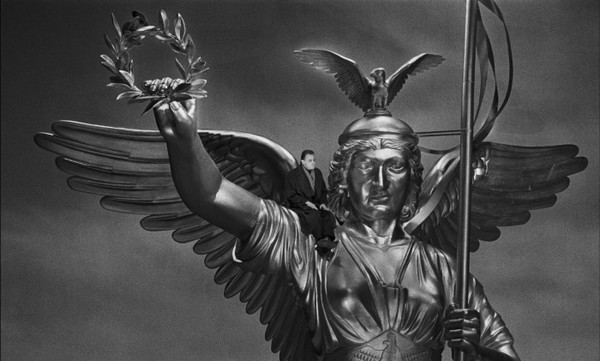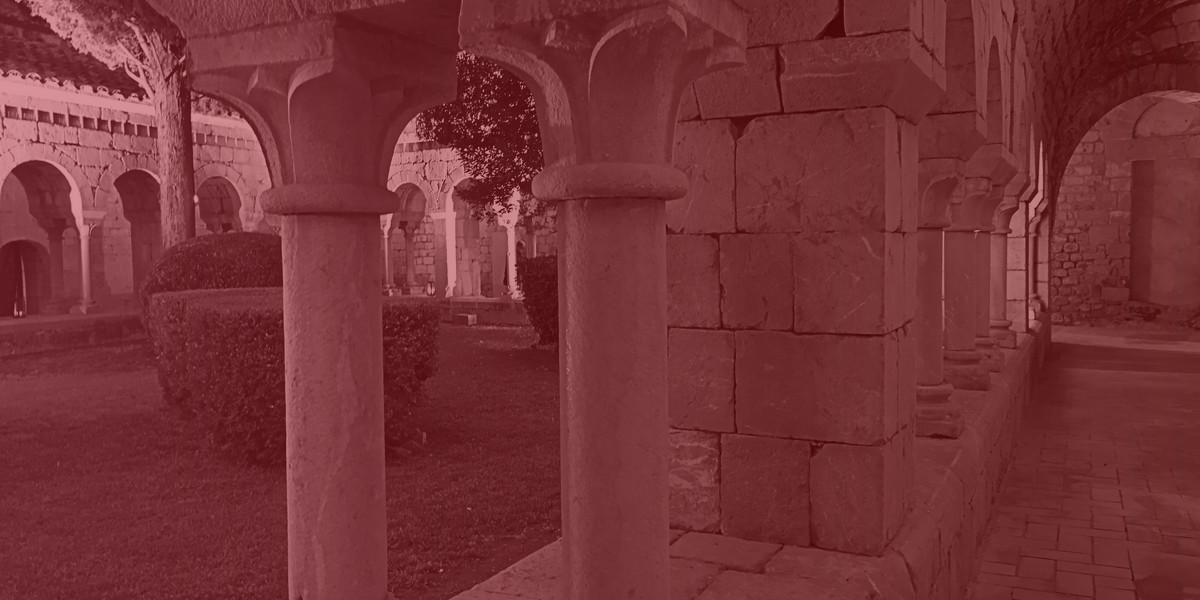
Als das Kind Kind war,
wußte es nicht, daß es Kind war,
alles war ihm beseelt,
und alle Seelen waren eins.
When the child was a child
It didn't know it was a child.
Everything was soulful,
and all souls were one.
We can hear these verses by Peter Handke at the beginning of Der Himmel über Berlin (Wings of Desire). In Wim Wenders' film, the angels wander around the city, invisible to everyone but children; they observe the lives of humans, but they can't interfere. Eventually, we know an angel that renounced to its immortality to become a person, and lives between the Berliners.
I think about this film when I listen to Der Engel. The poet tells us about childhood, about the stories she heard of angels that renounced to the bliss in heaven and came down to earth to give comfort to those who suffered; at the last stanza, she suggests that there are angels among us and a heaven on earth. Der Engel is the first of the Wesendonck Lieder, composed by Richard Wagner between late 1857 and early 1858 and published under the title Fünf Gedichte für eine Fraudestimme. Although the composer specified the songs were for female voice, there are men that sing them (as I told you some time ago, I don't see any reason to not do so), as Christoph Prégardien, whom we will listen here with Michael Gees and in Vilabertran with Julius Drake in a few days.
This week we are going over three more concerts at the Schubertíada. Matthias Goerne, Juan de la Rubia and María Dueñas are not giving a song recital, but in addition to some Bach's works we are listening to the Brahms's Vier ernste Gesänge for voice and organ, in the Basilica of Santa Maria de Castelló d'Empúries. Katharina Konradi (wonderful soprano!) and Daniel Heide will perform in Vilabertran songs by Fauré, Strauss, Mozart, Schubert and a Weinberg cycle that I presented a few weeks ago, his Jewish Songs (or Children's Songs); the program is, in general terms, very suitable for those who want to enjoy a concert without much emotional stress. Finally, dear Christoph Prégardien and dear Julius Drake propose an immersion in Romanticism, with the mentioned Wesendonck Lieder and the sublime Eichendorff's Liederkreis by Schumann; even the mélodies by Duparc they're performing share a lot with Romanticism.
After Der Engel, you'll find the links to the songs included in these three concerts that we heard so far on Liederabend.
In der Kindheit frühen Tagen
Hört ich oft von Engeln sagen,
Die des Himmels hehre Wonne
Tauschen mit der Erdensonne,
Daß, wo bang ein Herz in Sorgen
Schmachtet vor der Welt verborgen,
Daß, wo still es will verbluten,
Und vergehn in Tränenfluten,
Daß, wo brünstig sein Gebet
Einzig um Erlösung fleht,
Da der Engel niederschwebt,
Und es sanft gen Himmel hebt.
Ja, es stieg auch mir ein Engel nieder,
Und auf leuchtendem Gefieder
Führt er, ferne jedem Schmerz,
Meinen Geist nun himmelwärts!
In childhood's early days,
I often heard them speak of angels
Who would exchange Heaven's sublime bliss
For the Earth's sun
So that, when an anxious heart in dread
Is full of longing, hidden from the world;
So that, when it wishes silently to bleed
And melt away in a trickle of tears;
So that, when its prayer ardently
Pleads only for release,
Then the angel floats down
And gently lifts it to Heaven.
Yes, an angel has come down to me,
And on glittering wings
It leads, far away from every pain,
My soul now heavenward!
(translation by Emily Ezust)
Thursday 12 August: Matthias Goerne, Juan de la Rubia & María Dueñas














Comments powered by CComment